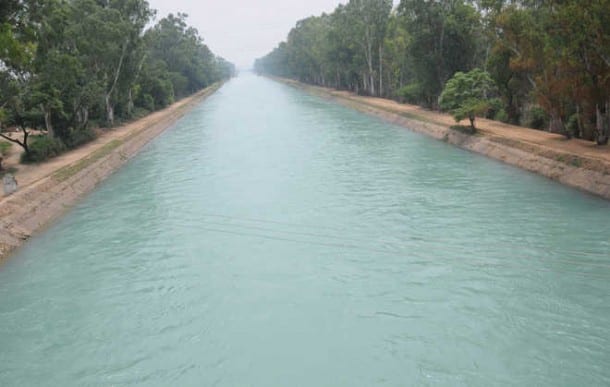

 CHANDIGARH, Punjab—In view of Haryna’s move to knock the door of the Supreme Court to challenge the Punjab Termination of Water Agreement Act-2004, Punjab government has moved the Apex Court under Article 131 of the Constitution, seeking that the Union government be directed to constitute an appropriate Tribunal under Section 4 of the Inter-State River Water Disputes Act, 1956 and refer to it the disputes raised by the State of Punjab in its earlier complaint with the Government of India under Section 3 of the said Act for adjudication.
CHANDIGARH, Punjab—In view of Haryna’s move to knock the door of the Supreme Court to challenge the Punjab Termination of Water Agreement Act-2004, Punjab government has moved the Apex Court under Article 131 of the Constitution, seeking that the Union government be directed to constitute an appropriate Tribunal under Section 4 of the Inter-State River Water Disputes Act, 1956 and refer to it the disputes raised by the State of Punjab in its earlier complaint with the Government of India under Section 3 of the said Act for adjudication.
Apart from this, Punjab also sought “adjudication of the question of whether Haryana and Rajasthan are riparian States or not.”
The Punjab Termination of Agreements Act, annulling all inter-state agreements signed by Punjab on sharing Ravi and Beas waters, was passed by the Punjab Assembly in 2004.
The chief minister’s office said that the Punjab government has pleaded that it had in its complaint to the Union government raised a water dispute for the constitution of an appropriate tribunal for reallocation of the Ravi Beas Waters, due to the change in the circumstances which pertain to drastic reduction in the availability of Ravi-Beas waters from 17.17 MAF to 14.37 MAF based on 1981-2002 flow series.
The water has got further reduced to 13.38 MAF based on the latest flow series 1981-2013, alarming reduction in ground water level of Punjab, adverse hydrological & environmental impact on Punjab on account of huge diversion of water to Yamuna basin areas, availability of additional water of 4.65 MAF to Haryana as provided in the Yamuna agreement in May12, 1994 amongst Uttar Pradesh, Haryana, Delhi, Rajasthan and Himachal Pradesh.
Another reason given in the complaint is that as per ground water estimation of Punjab made by Central Ground Water Board, 110 development blocks out of 138 have been over exploited, on account of necessity of irrigation due to inadequate availability of surface waters.
In the suit, a direction has been sought from the Govt. of India to fulfill its obligation to constitute a Tribunal as requested by Punjab.
The state government has pleaded that a time limit of one year has been fixed under the Interstate Water Dispute Act for constitution of a Tribunal after a complaint is filed, but more than 10 years have elapsed but Govt. of India has not taken any action in the matter. Punjab had been following up its complaint vigorously with Union of India in writing since long. The Chief Minister has also been personally taking up this issue with the Government of India from time to time.
The State of Punjab was left with no other alternative except to approach the Apex Court for a direction to Govt. of India to constitute a Tribunal for reallocation of water.
The state government had also showcased that Punjab area have a preferential right to use the Ravi-Beas water, which was a deficit basin adding that Yamuna basin of Haryana has lost its claim over the waters of Ravi-Beas after the conclusion of Yamuna Agreement dated May 12, 1994 and further proposed link of Sharda Yamuna.
The supply of Beas water to Yamuna basin areas of Haryana has threatened water usage of Punjab particularly in the Districts of Ferozepur, Faridkot, Muktsar, Moga and part of Sangrur, Mansa and Bathinda. These areas were allocated water legally before the reorganization of the State and the people have continued to use water leading to the development of legitimate expectations over the last five decades, based on principle of riparian rights. It was therefore essential to appreciate that parts of the districts of Ferozepur, Faridkot, Muktsar and Bathinda were totally dependent on surface (canal) water, since the ground water was brackish or saline and thus unfit for irrigation.
The state government has also pleaded that it is a well recognized principle that all water allocations were subject to review after a period of 20 – 25 years. Therefore, fresh adjudication of water allocations was required based on the scientific study and due to changed circumstances.




